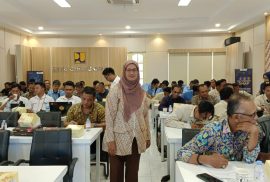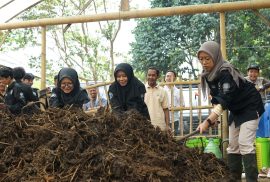
MAGELANG, July 24, 2025 – Today marks the third anniversary of the successful collaboration program between the Department of Agricultural and Biosystems Engineering (DTPB), Faculty of Agricultural Technology (FTP), Universitas Gadjah Mada (UGM), and the Yanmar Environmental Sustainability Support Agency (YESSA). This program focuses on the development of climate-smart agrotourism in Sambak Village, Kajoran Sub-district, Magelang Regency, which has now become a model village for the Climate Village Program (ProKlim).
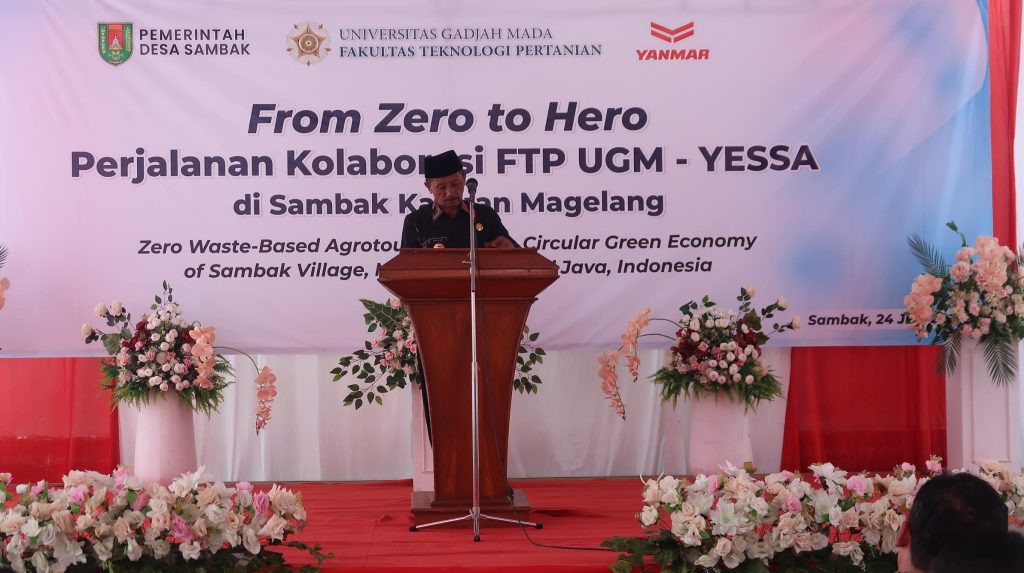
The anniversary celebration was organized by the DTPB-YESSA Team in collaboration with the Sambak Village Government. The event was attended by several prominent figures, including the Regent of Magelang, Mr. Grengseng Pamuji, along with officials from various local government departments. Also present were the Dean of the Faculty of Animal Science at UGM, Prof. Ir. Budi Guntoro, S.Pt., M.Sc., Ph.D., IPU., ASEAN Eng., the Dean of the Faculty of Agricultural Technology at UGM, Prof. Dr. Ir. Eni Harmayani, M.Sc., and the Head of the Department of Agricultural and Biosystems Engineering, Prof. Dr. Ir. Lilik Sutiarso, M.Sc. Representatives from Universitas Muhammadiyah Magelang and Universitas Tidar were also in attendance, showing broad support for this collaborative effort.
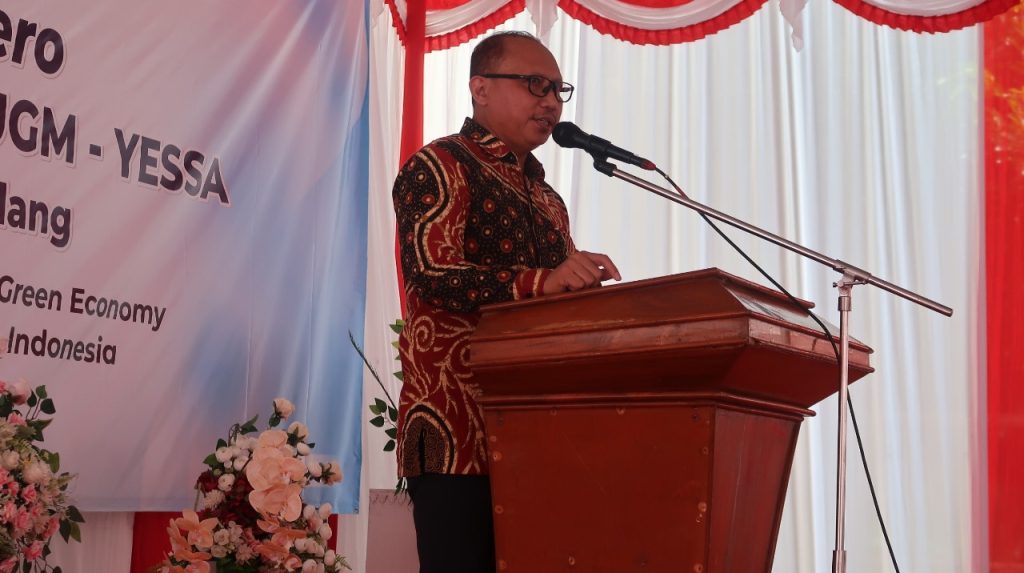
In his remarks, Sambak Village Head Mr. Dahlan shared the long journey from a mere dream to Sambak’s recognition as a ProKlim (Climate Village Program) model. “This is the result of hard work and tireless collaboration. What started as a dream has become reality—Sambak is living proof that environmental awareness and agricultural innovation can come together to create a self-reliant and sustainable village,” he said proudly. He also expressed hope for continued collaboration from both the government and academia to strengthen Sambak’s role in the Climate Village Program.
Prof. Budi Guntoro from the Faculty of Animal Science at UGM expressed his appreciation for the collaborative model implemented in Sambak. According to him, this represents an ideal synergy between government, academia, business actors, and the community that can serve as a national reference.
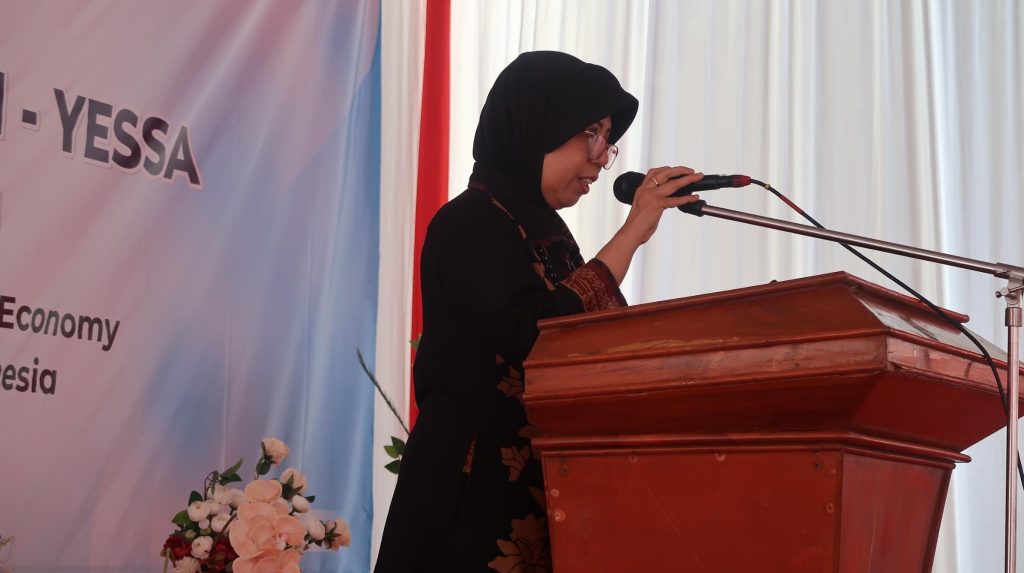
Prof. Dr. Ir. Eni Harmayani, M.Sc., Dean of FTP UGM, also expressed high appreciation for the synergy between YESSA and DTPB UGM, now entering its fourth year. “This collaboration is a real example of how academia, communities, and private institutions can work together to create a sustainable positive impact. Sambak Village is a living laboratory where theory and practice meet to produce real solutions to climate challenges,” she said.
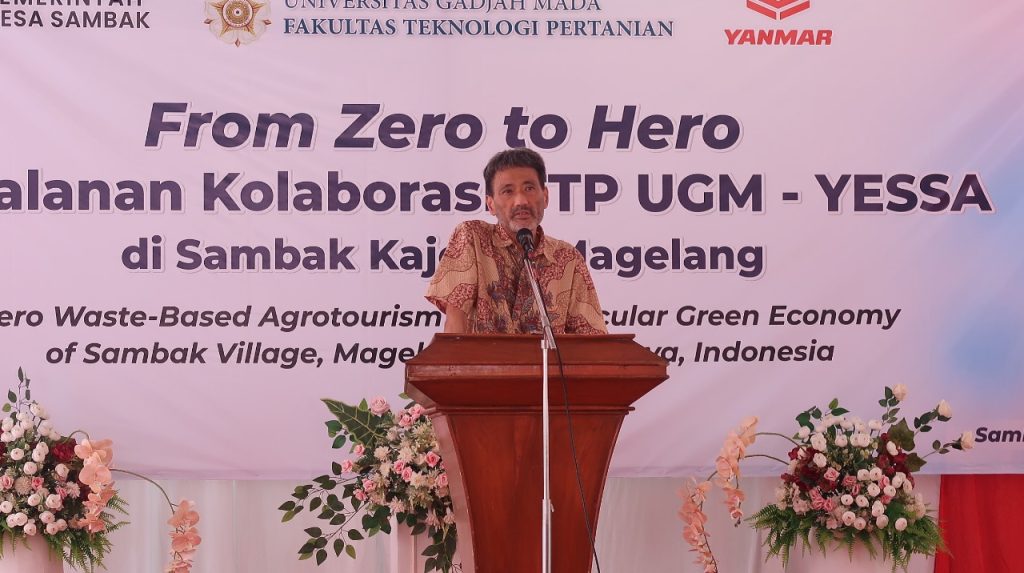
Prof. Morio Tsukada from YESSA highlighted the significant progress achieved by Sambak Village over the past three years. He also emphasized the importance of climate change awareness for the sustainability of both the agricultural sector and community livelihoods. “Climate change is a global challenge. Sambak Village has demonstrated how local communities can adapt to and mitigate its impacts through smart farming practices and agrotourism development,” stated Prof. Tsukada.
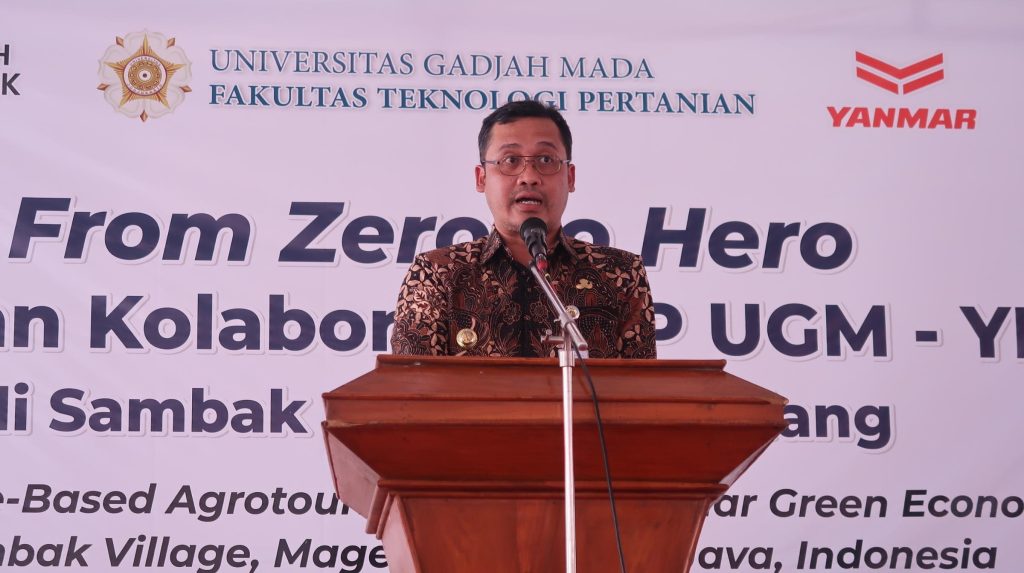
On this occasion, the Regent of Magelang, Mr. Grengseng Pamuji, expressed his pride in Sambak Village’s achievements. “Sambak has become a model village for sustainable progress. We deeply appreciate this collaboration, which places academia at the core of Magelang Regency’s development efforts, starting with villages like Sambak,” said the Regent. He added that this program aligns with the vision of the Magelang Regency Government to create self-reliant, resilient, and environmentally conscious villages.
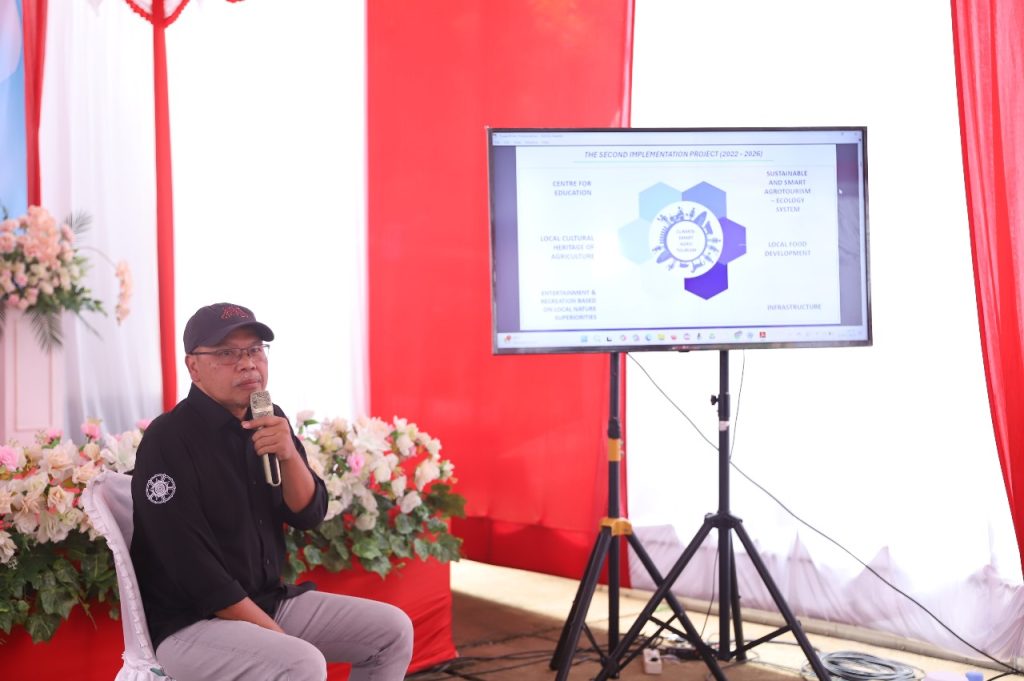
Prof. Lilik Sutiarso, Head of the Department of Agricultural and Biosystems Engineering, explained that the success of Sambak Village was not the result of individual efforts but rather the synergy of all stakeholders involved. He also noted that as the program enters its fourth year, Sambak Village has nearly achieved the five key elements of climate-smart agrotourism: Ecological Systems, Center for Education, Local Food Development, Entertainment and Recreation, and Supporting Infrastructure.
The program’s success is expected to continue beyond the duration of the YESSA collaboration. Stakeholders hope that Sambak’s climate-smart agrotourism initiative can be sustained and serve as a model for other villages. Local innovation and independent management are seen as critical to ensuring the long-term growth of the program.
This collaborative effort directly contributes to several Sustainable Development Goals (SDGs), including:
-
SDG 2 (Zero Hunger): through sustainable agricultural practices that enhance food security.
-
SDG 8 (Decent Work and Economic Growth): by creating new economic opportunities via agrotourism.
-
SDG 11 (Sustainable Cities and Communities): through the development of climate-adaptive rural communities.
-
SDG 12 (Responsible Consumption and Production): by promoting environmentally friendly farming methods.
-
SDG 13 (Climate Action): by adopting climate-smart strategies and emission mitigation.
-
SDG 17 (Partnerships for the Goals): which lies at the core of the collaboration between DTPB UGM, YESSA, and the Sambak Village Government.


